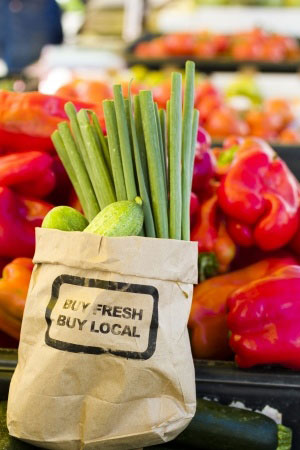 “Artisanal,” “craft” and “locally-sourced” are three of the hottest new trends in food service today. Add these phrases to a food label or restaurant menu and consumers flock to these items.
“Artisanal,” “craft” and “locally-sourced” are three of the hottest new trends in food service today. Add these phrases to a food label or restaurant menu and consumers flock to these items.
On the flip side is genetically modified (“GM” or “GMO”) food, which has been engineered for specific characteristics like weed or drought resistance. In the eyes of many consumers, GMOs have become synonymous with “big food.” Rightly or wrongly, consumers consider GM food to not only be less nutritious, but also more harmful to the environment, according to FoodNavigator USA’s Elaine Watson.
This places many brands in a difficult bind: consumers are demanding GM-free food— not just in produce, but in meats and animal products as well— yet it is extremely difficult to source ingredients that have not been touched by GMOs.
Major brands that tout their products as “natural,” for example, must still use milk from dairy cows that have been fed GM feed.
The question then arises as to whether it is acceptable for brands to use a “natural” label if a food’s ingredients come from animals that have been fed GM feed.
If a brand does continue to label their food “natural,” will they be perceived as disingenuous? Or, worse, will doing so expose the brand to potential litigation? These are some of the hottest questions facing the food industry today.
Are Foods Still “Natural” if Ingredients Come from Animals with GM Feed?
Consider the case of Chobani.
While the popular Greek yogurt does not contain ingredients that have been, themselves, engineered, Chobani does source milk from cows that eat genetically modified (GM) feed. A Green America campaign last summer targeted Chobani, calling for the company to “cease marketing its products as real and natural” until Chobani switches to “verified non-GMO milk sources.”
While Chobani is resisting pressure to rebrand its products, the company has bowed to consumer pressure and is already in the process of securing more non-GM animal feed—though company spokespeople are quick to assert that the switch in no way indicates that the Chobani believes there is a safety issue with GM crops.
But obtaining large quantities of milk from cows that have not been fed GM feed is much easier said than done.
“As a market leader, we’re being open and honest about the challenges we face around animal feed,” Peter McGuiness, Chobani’s chief marketing and brand officer, told Food-Navigator USA in March. “Change will not happen overnight. This is a food industry issue, not a Chobani issue.”
In light of this recent controversy, Chobani has sought to focus more attention on its positive work toward local, sustainable agriculture. The company continues to tout its commitment to local sourcing from regional farms where cows are not treated with growth hormones like rBST, along with a commitment to only using natural ingredients and responsible manufacturing.
But will local sourcing and responsible manufacturing– two hot new trends in food service– be enough to outweigh the controversy over the brand’s “natural” label?
Can Conventional Farmers Find Non-GM Feed?
Ben & Jerry’s is known for its all-natural ice cream, and the company has been a vocal advocate about transitioning farmers to conventional, non-GMO corn, soy and other commodities. In a recent company blog, however, Ben & Jerry’s made clear that currently is it extremely difficult for conventional farmers to find feed that does not contain GM ingredients. Given that more than 90% of all corn grown in the United States is genetically engineered, even brands who are looking to move toward an entirely GM-free product face an uphill challenge.
Even with major brands like Chobani and Ben & Jerry’s pushing for more conventional non-GM feed, change won’t be happening overnight. Additional questions also remain unanswered. For example, would consumers be willing to pay more for dairy products from animals fed non-GM feed? And, is there a way to make non-GM feed competitively priced? Or, will brands and celebrity chefs begin to embrace GM food as one of the new trends in food service?
Keep a close eye on the food landscape to see what develops in 2015.







